Jeff Jourard | Interview | “From Heartbreakers to Motels”
Jeff Jourard is guitarist best known for being featured on the legendary album ‘Tom Petty & the Heartbreakers’ that was released in 1976. Jourard continued his career in the influential The Motels and is currently active as a member of Hollywood Stars.
The Hollywood Stars recently added Jeff Jourard to the band’s lineup. Jourard will be sharing guitar duties with George Keller who joined in March.
As teenagers in the late 1960s and early ’70s, Jourard and Tom Petty were aware of each as they played in different bands in Gainesville, Florida. At the time, future Tom Petty & the Heartbreakers’ bassist Ron Blair was playing in Jourard’s band, RGF. Tom Petty’s band Mudcrutch relocated from Gainesville to Los Angeles in 1974. “I had already moved to LA in 1972, and had played a gig at the Whisky a Go Go in ’73,” recalled Jourard. “When Mudcrutch broke up in 1975, Tom Petty was still under contract to Shelter Records and he was looking for musicians for a new group. Eventually, Ron Blair and I were invited to take part in the sessions for ‘Tom Petty & the Heartbreakers’ (1976). I play guitar on most of the tracks and that’s my motorcycle jacket on the cover.”
By early 1978, Jourard was working with Martha Davis on the Motels’ debut album. The resulting Motels includes a pair of tracks co-written by him, including the second single, ‘Total Control,’ which Tina Turner covered in 1982. Jeff Jourard’s younger brother, Marty Jourard, also joined The Motels at this time and is back in the band’s current lineup.
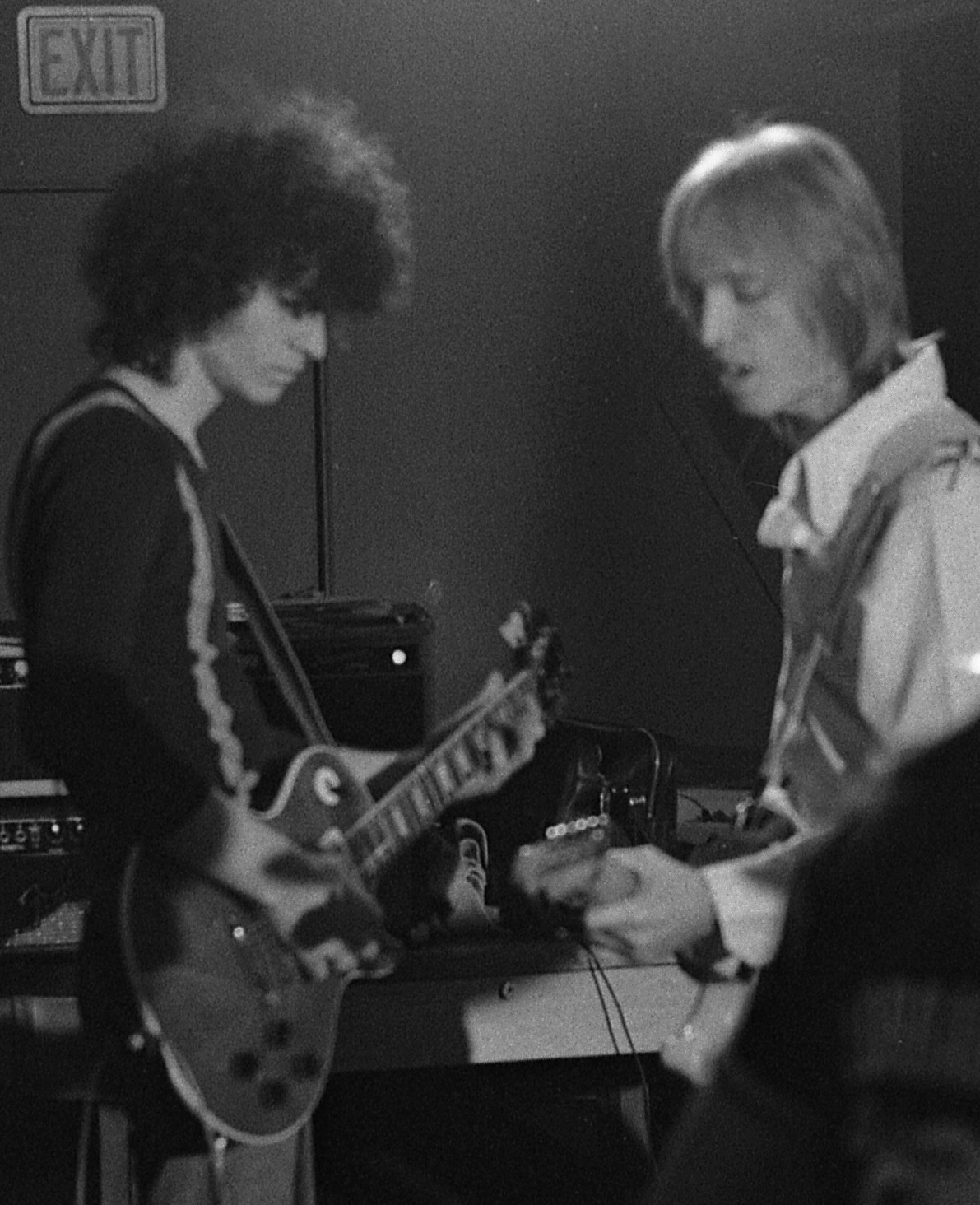
“It was The Rolling Stones that sealed the deal for me”
It’s really wonderful to have you. How have you been in these weird times? What currently occupies your life?
Jeff Jourard: Hi Klemen! These days I enjoy life at home and travelling with my beautiful wife, and I am in three bands. I once said I would never marry and I would never be one of those Hollywood guys who are in multiple bands at once. Now I am in both situations! Never say never, right?
You are joining The Hollywood Stars. Are you excited about it? When did you first see them back in the day?
To be honest I never saw The Hollywood Stars live.
I saw the name on marquees and in the music papers. I was aware of the band on the scene, I just never caught them live.
Yes, I am excited to be in the band! You know, it’s funny – for various reasons, I had retired from the world of bands and music and live playing and was focusing on songwriting. Then one day I was following some Facebook post about some interesting guitar equipment (it never ends, right?) and met George Keller. We hit it off immediately and geeked out on gear in a serious fashion. It turned out that he lived only about five minutes from me, so we met in person and he thought I might make a good addition to The Hollywood Stars which he had just joined. In a very short time, that turned into me joining the band and now we are like Heckle and Jeckle – twin troublemakers. We even bought matching guitars and matching amps… it’s ridiculous!
Are you planning to record some new material with them?
Yes, there is studio time booked already. They have half of the new album already done, that was before I joined. Now the rest of it will be done with the present lineup that includes George Keller and me on guitars.
Needless to say, equipment choices will figure highly!
Would love it if we could go back in time to your teenage years. Tell us, where did you grow up and what was your upbringing like? Was there a certain moment when you knew you wanted to become a musician?
I was born in Buffalo, NY and the family moved multiple times before settling in Gainesville, Florida when I was six, Gainesville is where I grew up. My parents were both kind of bohemian beatnik, nonconformist types, so I had an interesting childhood. My mom was artsy and stayed up late – I think that’s where I got it from. To this day, 10:30 at night does not feel like bedtime, it feels like showtime! In Gainesville, I did kid things like rode my bike, slide down grassy hills on cardboard, snuck into the stadium when it was closed, learned to make crude gunpowder from my neighbor, set things on fire, blew stuff up, shot my BB gun down at the creek… all typical boy stuff. Even though Gainesville is in The South, having the University of Florida there makes it different. One slice of the town was just a little Southern hick town with all the prejudices and narrow thinking you would expect from a small town, but the other was the more open-minded, worldly and informed. I had a foot in both worlds until I was about 16, then I went all in with the art people.
There was always music in the house. Mom sang and played a little piano, Dad had a Goya guitar and loved folk songs. When I was four or five years old, I especially loved the record player because when it would play, I could see little transparent people inside the speaker cloth making the music and wavy patterns, streams and dots in the air. I now know it has a name – Synesthesia – and I surely had it then. Not so much now.
A lot of folk music players visited the house and some of them also liked Blues which was included in Folk Music. When I heard them playing those bendy notes and singing those beautiful moody melodies, boom, that is the moment when I got hooked. I wanted to make that sound. That would have been about 1960, 1961. That’s when I wanted to know how to make that beautiful noise but really just for myself… no thought of being an actual musician.
When I wanted to be a MUSICIAN was… when the family went to England for a year in 1964, I was 13 and it just so happened we landed in the middle of the red hot mad Swinging London times. Mods and Rockers, Pop Art, miniskirts, motor scooters, motorcycles, and BANDS. Bands like The Who, The Animals, The Kinks, The Pretty Things, The Yardbirds, The Moody Blues and a ton more were all brand new baby bands trying to get noticed for the first time. Can you imagine? The Rolling Stones were already on top and The Beatles were royalty. It was The Rolling Stones that sealed the deal for me. In London, they were on TV a lot, sometimes just as colorful nonmusical guests, so we got to know a lot more about them than just radio and TV performances. I connected with Brian Jones’ coolness in a big way. The clothes, the hair, the music he made and the BLUES that he loved. That made the connection with me and it just went “click,” I’m IN.
Another family from Gainesville who we knew well was visiting England at the same time, also for a year. They had a son about my age and we would visit sometimes and he was going crazy about the whole scene the same way I was. We made a blood oath that the minute we got back to Gainesville, we were starting a BAND, and that’s just what happened. Since that moment, it has been pretty much a straight shot right up until my recent pointless attempt at “retirement!”
Tell us about some of the early bands you had in the Gainesville, Florida area? Are there any recordings or even unreleased recordings from those bands?
That first band we formed immediately after returning to Gainesville was called The Lords. We were all from the same high school. Guys came in and out of the band, with name changes each time and changes in styles. Then came The Odd, Maddox Foundry, Soal Blues, and City Steve which ended when we all got arrested during an out-of-town Spring Break gig on false narcotics charges. The local law had it in for us, they hated hippies and anything about them; we were a psychedelic rock band, the worst possible influence on their nice, conservative, mild boys and girls. Right after the show, we were packing the van and 7 cop cars came screeching in just like the movies, surrounded the van and pulled us all aside.
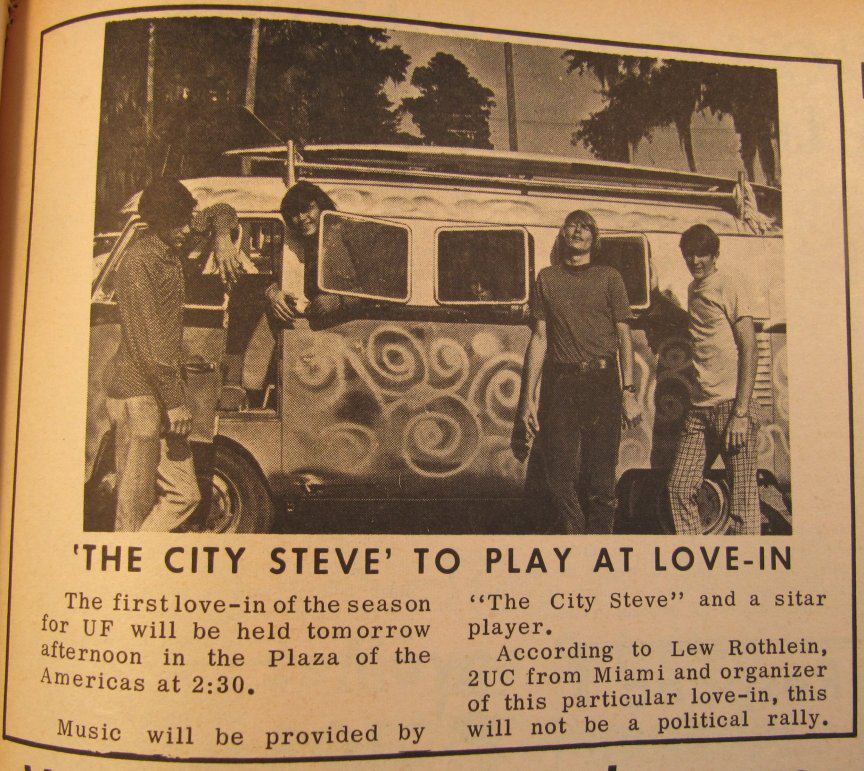
They searched the van, planted a joint, pretended to “discover” it and put us all in cuffs. If we longhairs weren’t getting bottles thrown at us from passing cars or being yelled at from pickup trucks, we had to deal with scenes like this in Florida.
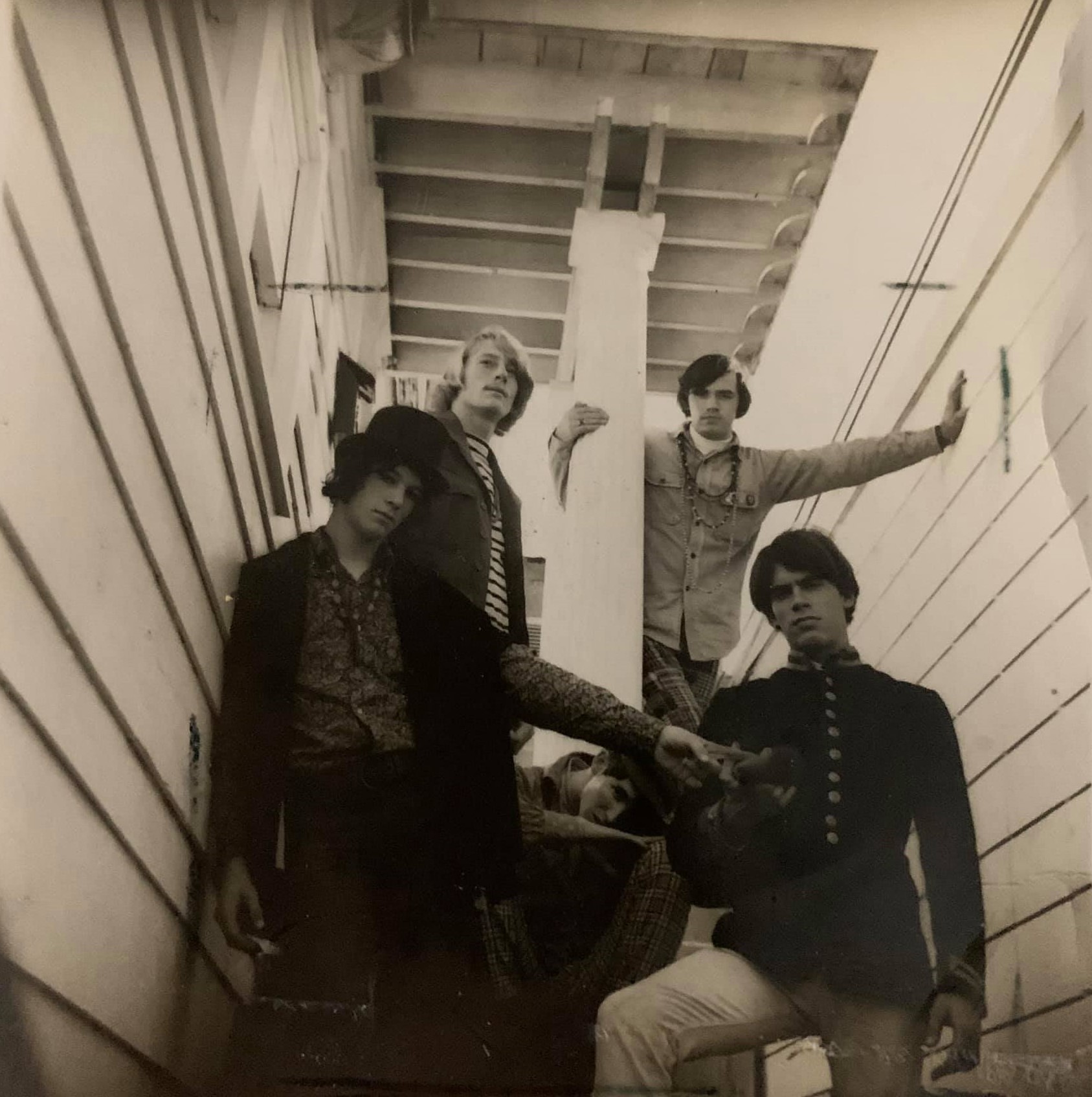
After a long break, I started jamming with some local musicians and a graduate art student who was a good drummer. After several changes, we ended up as RGF, a name that lives on in legend around Gainesville. But the name was a joke.
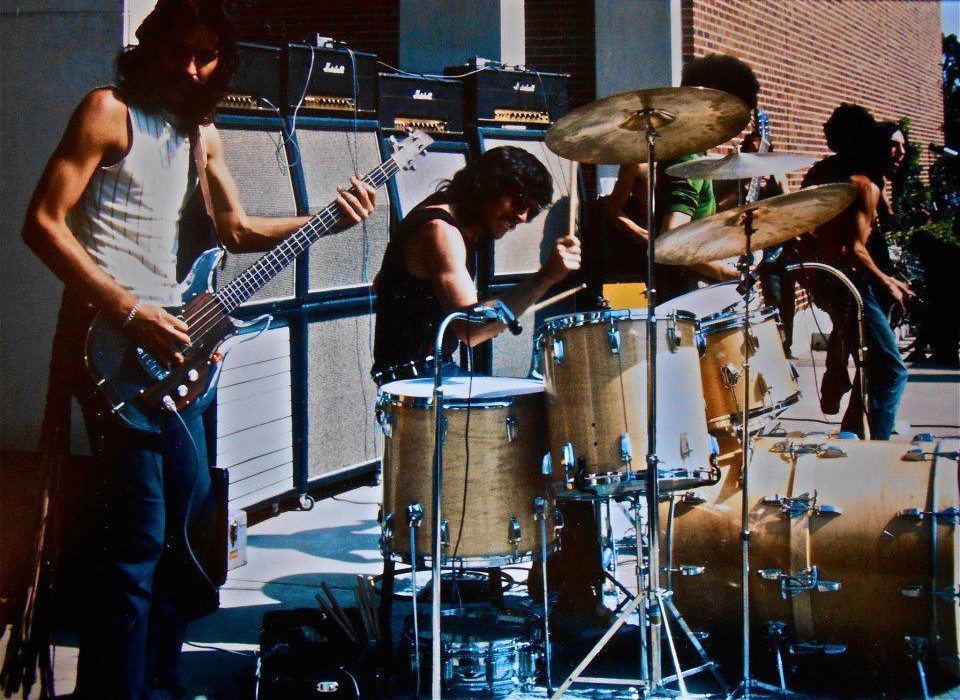
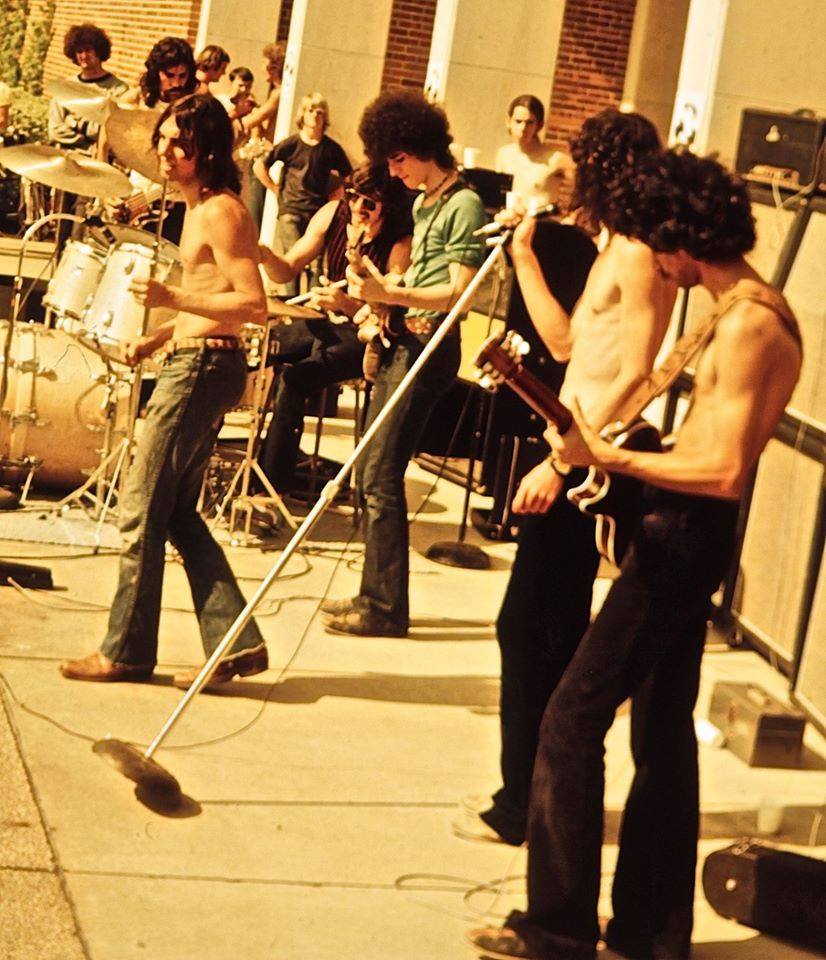
Here’s how it happened: We hadn’t really picked a name yet, it might have been Love Cannon that week. See, we beat Malcolm McLaren to the idea by about seven years! We were setting up our equipment for an outdoor set in the middle of the University campus. A typical old-style College Joe comes driving right up to us on the grass, in a little sports car with the top down, with his conservative little haircut, his college Gant shirt on and a giggly girl in the passenger seat. He’s showing her around like the Big Man On Campus and yells out, “you guys gonna play?” We already hate him, he represents everything old, traditional and outdated that we are breaking away from. We are not nice to him. One of us just says, “uh-huh.” He says, “oh really? What’s the name of the band?” We look at each other, one of us looks right at him and says “The Fuck”. That was still a horrible, foul, unspeakable word in those days – it’s nothing now, but THEN, it packed a real wallop – and it was definitely meant to disgust the little girl and piss him off. It worked, she was appalled. He kept on though, “really?” “No, actually it’s the Good Fuck”. The girl made it clear she wanted to get out of there. Then it kept going, “No, it’s The Really Good Fuck”… “No, it’s The Really Really Good Fucking Fuck Fuckers”. He finally says, “you guys are crazy,” and spins away with grass and dirt flying. Once he was gone we pissed ourselves laughing about it. Then we started thinking, why not? We trimmed it down to Real Good Fuck and went with that. Who wouldn’t like a Real Good Fuck? We played an extremely loud combination of MC5, Led Zeppelin and Traffic type influences and when our shows were done, people said they felt like they’d just had a RGF….
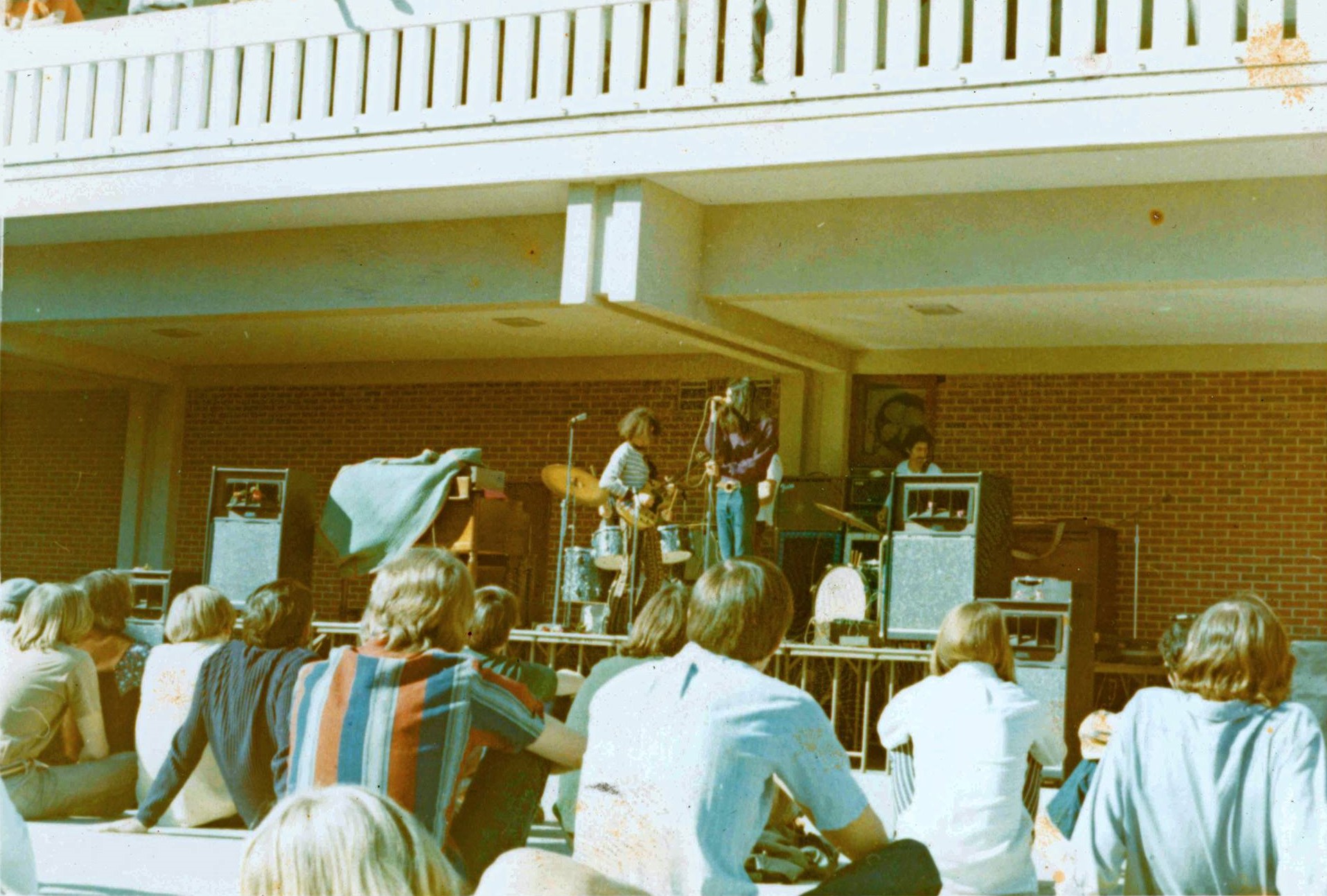
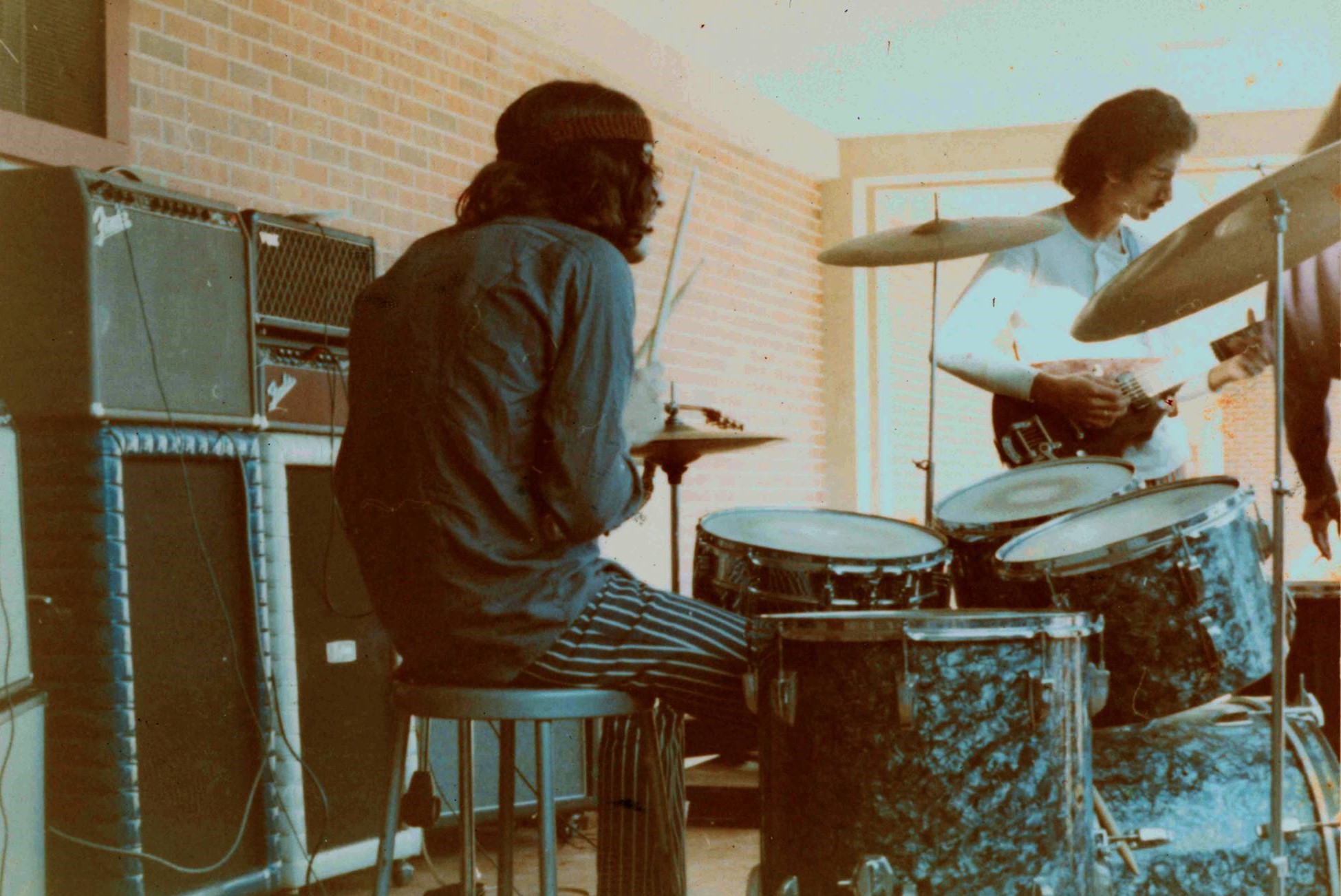
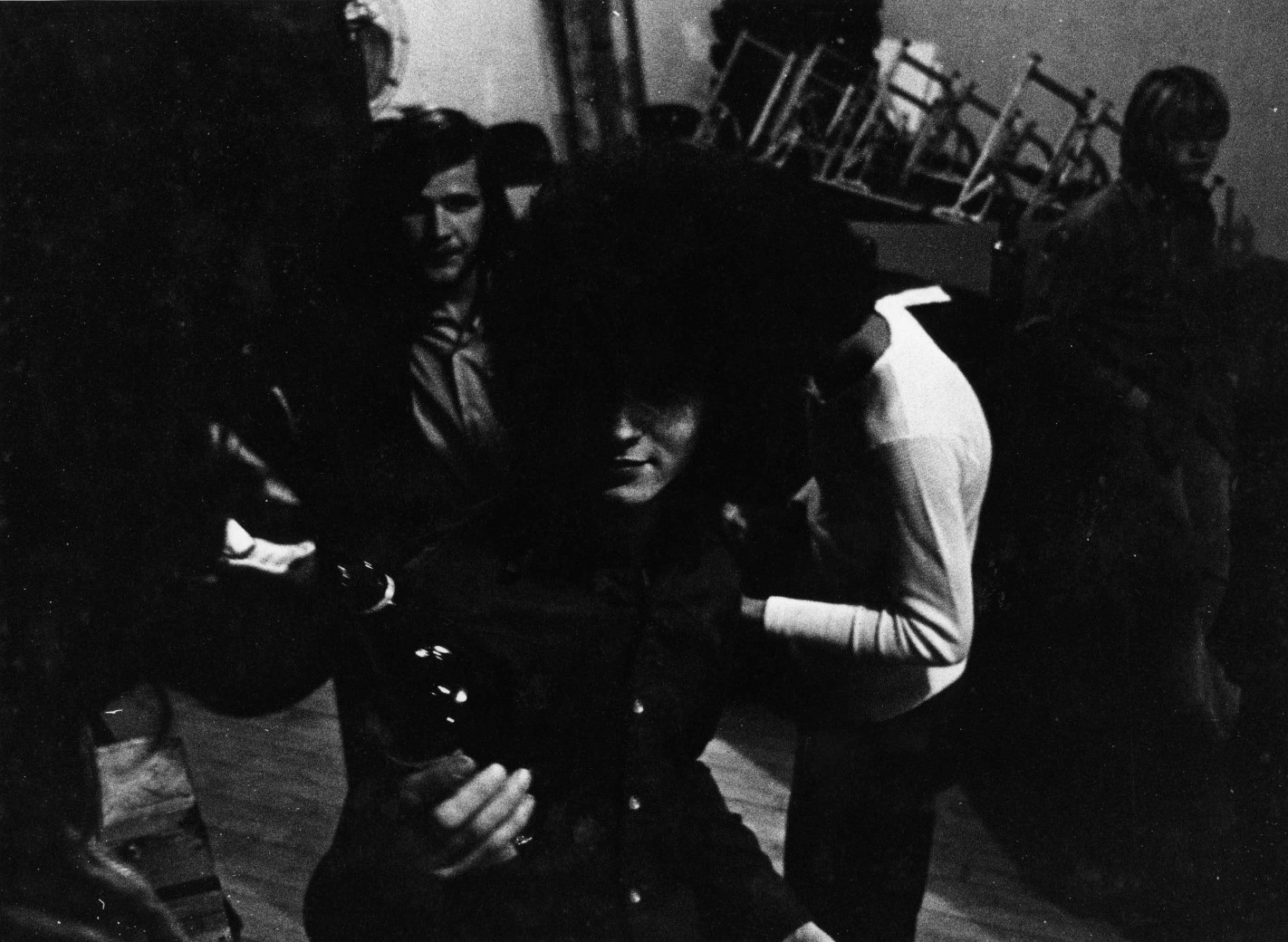
We couldn’t put it on posters or in the newspaper but pretty soon everybody knew what the initials meant. We even had a guy pay us extra if we would provide a gig contract that had the name spelled out. Of course we took the money and he framed the contract and kept it on his wall.
There are absolutely no recordings from any of that time period except for a reel of tape from a live concert that disintegrated a long time ago.
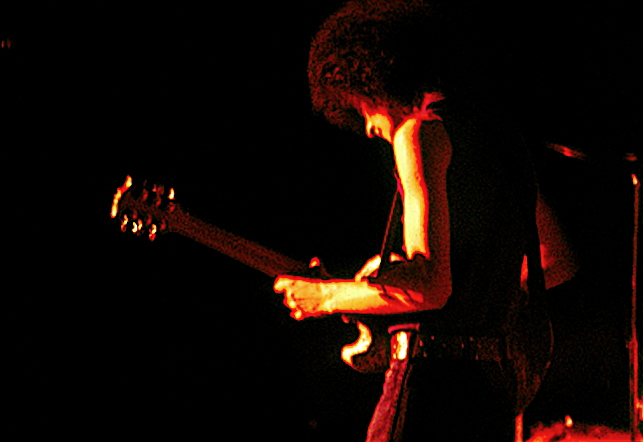
When did you originally meet Tom Petty?
Most likely it was in 1965 at the Chandler’s hamburger stand on 13th Street when we were both on breaks from playing separate bar gigs. It was the go-to place on the strip there because you could walk down there, get something to eat and make it back to the bar in time to start the set. Pretty common to see fellow players there.
But we knew who each other was before Chandler’s. I’m sure we would just wave at each other or say hi when we came across each other in town. The musicians felt like a tribe and you at least said hi to any other local musician, and especially if you had long hair. That was another tribe. A musician with long hair felt especially sympathetic to another brother. So we were aware of each other without actually meeting back then. Tom Petty wrote in the intro to my brother Marty’s book (“How To Start A Band”) that I made a big impression on him when I first came back from England – I had strange new clothes you couldn’t get anywhere in Gainesville, I had the long hair, I kept to myself, and seemed to him to be the epitome of Cool. He just saw me walking around. I didn’t know anything about this until that book. Or he might have made it all up just to be nice to my brother – I’ll never know.
When RGF was going, there was a guy, Baird Duncan, who decided he was going to be a manager and approached us and Mudcrutch. We said yes primarily because he had a nice room or guest house we could rehearse in. Mudcrutch would be leaving as we arrived, and vice versa. We probably met more properly then. I also found out later, after I joined the pre-Heartbreakers, that we both used to make fun of the other band by playing really bad imitations of their style. We thought Mudcrutch was dopey hillbilly country hick music, yee-haw! And they thought RGF were moronic, dim, repetitive hippie claptrap.
Tom Petty in many ways was a closed book. You saw what he wanted you to see, I don’t feel like I ever really got to know him. Some years after I was out of the Heartbreakers, I asked Mike Campbell, “you work with him all the time, you’re probably closer to him than anybody except his wife, so who IS he? Who is Tom Petty really?” He told me, “Jeff you know as much as I do. I don’t know him any better, I play guitar with the guy, I give him cassettes, he writes words to them and sometimes they turn into songs. I don’t know any more than you do.”
Tom Petty and his band Mudcrutch moved to Los Angeles. You already have been there, how come?
In 1971 RGF used up every opportunity in Gainesville and drove up north – with no plan – to play in Boston and then New York with the idea of something big happening as a result. It didn’t and the band broke up.
I came back home with no prospects and just hung around town and built waterbed frames for most of 1972 and put my guitar away. A guy I met in Boston, Chris Demarco, called me in November, from Hollywood. He said he wanted me to come out and complete this band project that had interest already. I didn’t totally believe it, but thought it would be good to go to a bigger place with more possibilities. I flew out in December 1972. That project lasted for another year or so and then it broke up. So I was in LA, playing in little projects here and there. One of them was the backing band for Jimmy Harrison, the younger brother of Wilbert Harrison – the “Kansas City” guy.
When I came to Los Angeles, I didn’t know a soul in town except Chris Demarco, and there were no Gainesville people out here at all. I used to think that Tom Petty saw that I went to LA and it didn’t kill me, so he decided to follow my example. Not at all. He came out because he researched where record companies were and where the action was.
So yeah, I was out here already for my own reasons and he came out a year or two later with Mudcrutch for his reasons.
Tell us the circumstance surrounding you joining Tom Petty & the Heartbreakers on their debut album?
After Mudcrutch broke up, they all more or less went their separate ways. Their label, Shelter Records, was owned by Denny Cordell and Leon Russell. Denny wanted to keep Tom Petty and his writing attached to him so he had him under a solo contract. Denny set up sessions with A-list session musicians but Tom Petty was not happy with them, they were too precise and exact. We have a way of playing in Gainesville that we all absorbed without knowing it and you don’t even know it or miss it until it’s gone. Benmont Tench was recording some demos using the only people he knew in town who were all from G-ville. I got a call one evening from Stan Lynch who was at the studio – “you better get down here, we’re having a blast!” I got there and saw all the familiar faces. It was easy to drop into a familiar groove. Ben invited Tom to check it out. When he heard what we were doing, it was so much more like what he wanted than the studio guys were doing that he basically just stole the whole thrown-together band. He’d have me come down one night, Ben on another, and so on in different combinations. The studio cats got replaced one at a time until the recording band was all Gainesville guys. It was still a Tom Petty solo project though, even though the rest of us were calling each other and saying stuff like “it sounds like a band to me.” Tom Petty was fed up with bands and all the drama; didn’t want to have a band. Cordell eventually persuaded him that people like a star in a band more than a star alone. So after it was officially a band, we started rehearsing in a big spare space above the Shelter offices in Hollywood. Shelter had a recording studio in Tulsa and moved all the equipment into that space. It was painted brown there, so it became The Brown Room. Most of the debut album was recorded in that really funky brown room with cables everywhere and nailed together partitions – really basic circumstances. I spent a lot of hours in that sweaty space. Tom Petty had written ‘American Girl,’ probably with the USA bicentennial in mind – the year was 1976 – and we recorded it over the July 4th weekend in that room. The space had no air conditioning and there was a big heat wave going on. You know what a mistral or khamsin is? LA has the same thing called Santa Ana winds. I remember it was sweltering hot right into the night time. I remember we definitely couldn’t keep our shirts on in that heat and maybe even took off our pants too and recorded in our underwear. Florida gets really hot too – it wouldn’t have been the first time for that.
It must have been a lot of fun working on those tracks in the studio?
Everybody was intensely focused on the task at hand and working to put down the best possible takes. The mood was serious and intense but it felt important and gratifying. It was fun in that sense, but this was no party. Also the conditions were not ideal. Shelter’s money was frozen in the courts due to Denny & Leon’s parting, so Denny was calling in favors all over town for spare studio time. If a studio was booked all night, but the artist finished early or cancelled, we would get a call sometimes at 10 or 11 at night to hurry up and get on down there to use the remaining time. Then we’d be there until 4 or 5 in the morning. When the “brown room” got up and running finally, it was a godsend to have it available all the time.
Did you do a lot of shows?
None, really. Just a miserable Saturday afternoon gig at a teen center at a park. One of the last things Tom Petty did before the band packed up and got ready to go to England, was to call me up and cut me out. I took that pretty hard, that was almost everybody I knew in town and they were all leaving.
What were the Mudcrutch like? They never managed to release a record back in the days…
Mudcrutch were all nice people.
In Gainesville, and the South in general, our music scene wouldn’t accept assholes or nasty people, so you either were decent to be with or you left town. Musically, Mudcrutch were a sort of country rock thing, along the lines of Flying Burrito Brothers or Poco plus rock & roll tunes. In those days, your band was your new family, your tribe, your gang. You absolutely believed in your band and what it was going for. That’s why we were like ships passing in the night. They were over there and we were over here and there wasn’t much overlap. I met Mike Campbell at one of the outdoor events RGF played on campus. He was still new in town and he wanted to borrow my guitar and get up and jam and I shut him down. What he didn’t know was that so many times before, some guy tripping on acid wanted to do that same thing, and I wouldn’t get my guitar back for hours and then it would be out of tune, with a broken string and all scratched up. I didn’t know Mike yet so I said No. Must have hurt his feelings because he has never really forgiven me for that!
Funny fact is that it’s your jacket on the cover.
Yup. Bought it second hand at a surplus store in Denver in 1974 for $50. “Bring lots of clothes” they said when we did the photo session for that debut album cover. I brought the jacket for myself. Tom Petty had various things, he’s always been clothes-conscious, but the stylist on the session told him to try on the jacket. And then the jacket with the ammo belt that Stan Lynch had brought. He thought he looked ridiculous which is why he has that smirk on the cover shot. He’s thinking, “Really? This is what you want?”
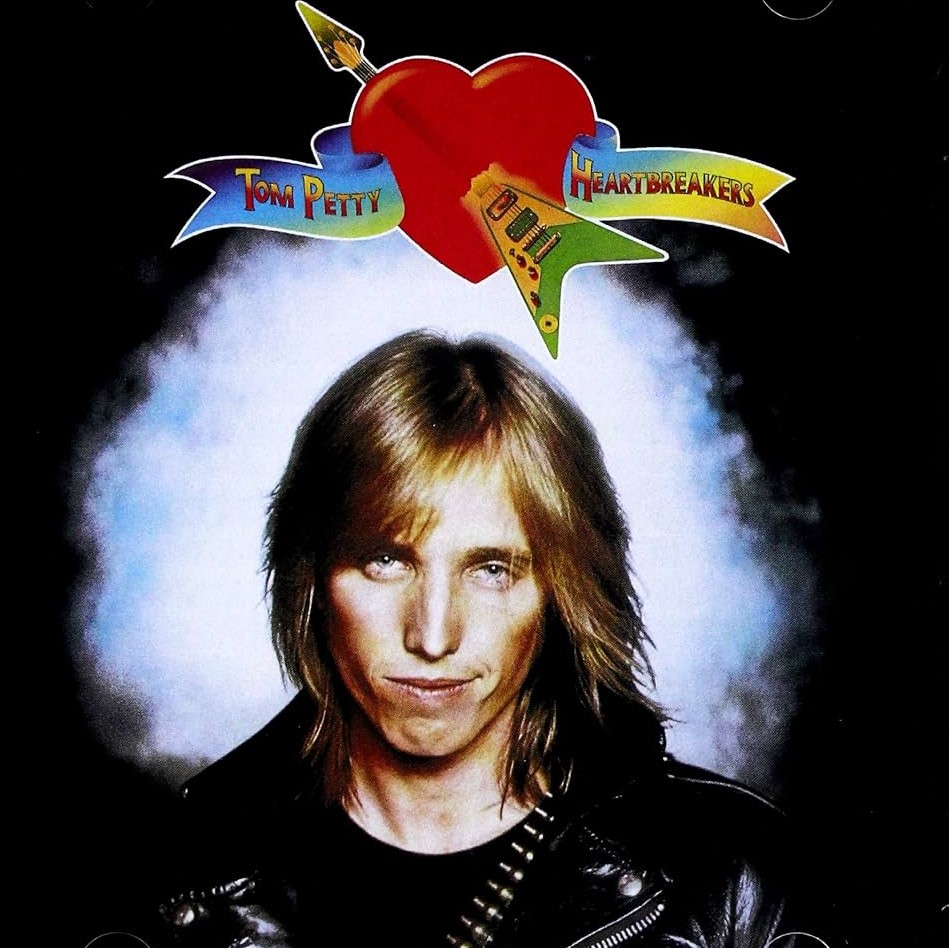
How did you meet Martha Davis and what eventually led to The Motels?
I hunted her down on purpose. After I got over being booted from the Heartbreakers, I came up with three local bands I would like to join. The Motels were top of my list – I had seen the early version of the band and was impressed by the singer. She was wearing green and black zebra panne-velvet Capri pants, some big fake fur bolero top, weird giant sunglasses and was operating a Light Tube which was a clear pipe that made noises when you pointed it at lights. Interesting voice, lower pitched than most of the screechy female vocalists around at the time. They sounded like Velvet Underground to me. It took forever to find out her name and nobody seemed to know what happened to them. They’d broken up and gone back to Berkeley. I went downtown to the main office of the phone company where they had a phonebook for every town in California. I looked up all the Martha Davises I could find and started calling them. I struck out completely, none were her. I briefly joined a band that mentioned The Motels in their Guitarist Wanted ad. That was Dean Chamberlain’s post-Motels band. From him I got her number and called her up. Turned out she lived about six blocks away the whole time. So I went over there and just told her “we’re starting a band.”
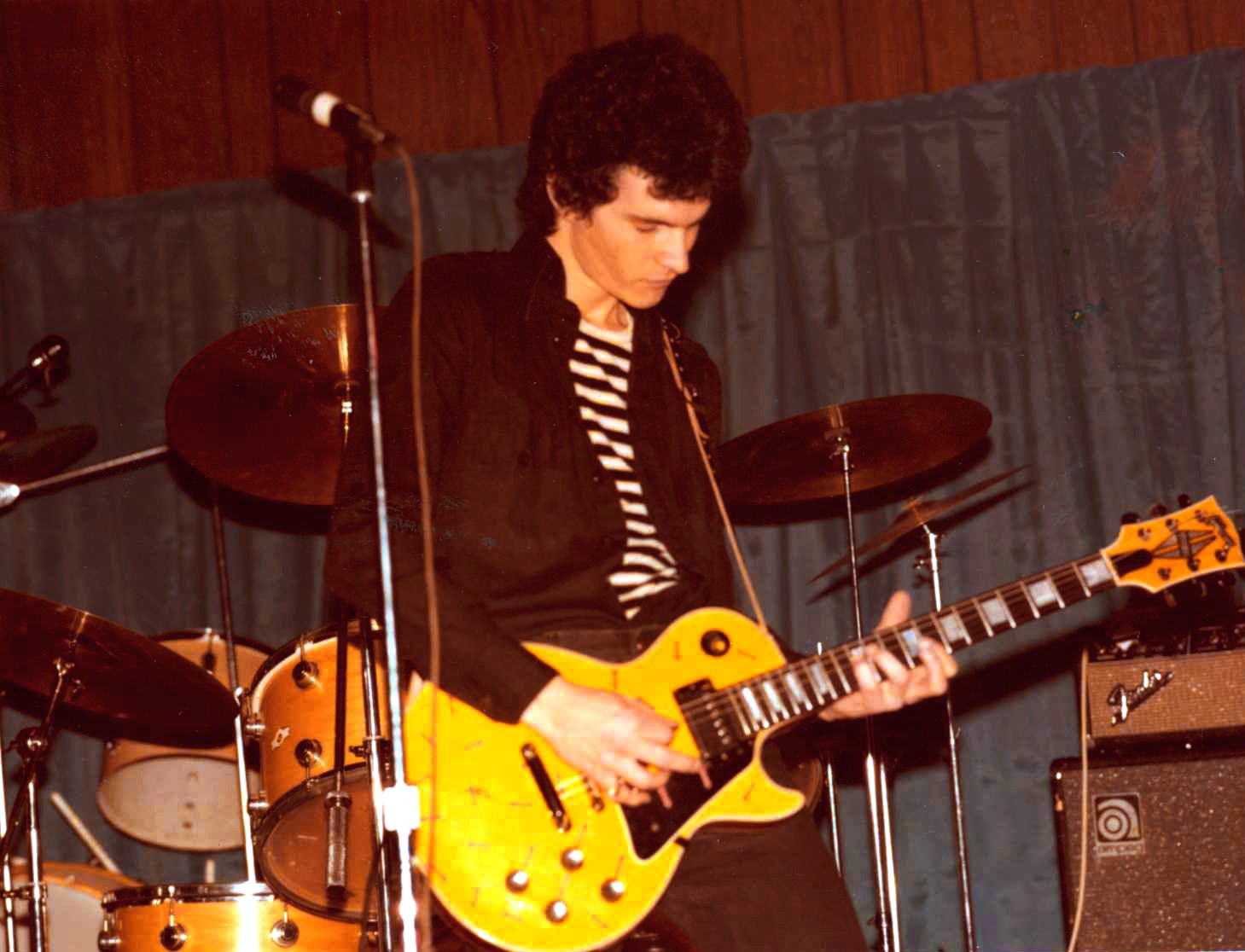
What are some recollections from working on The Motels fantastic debut album?
Capitol allowed me the amazing privilege to pick any studio in town to record our album. I liked Sunset Sound so it was booked and on our very first day, our producer, John Carter, gave us all a very stern lecture about being careful around their quarter-million-dollar custom-made API mix console – don’t do this, don’t touch that, under NO circumstances come anywhere near it with a drink or liquids, et cetera. Yes Carter, we understand. So we are getting set up for our very first recording of the project and Carter has his little Producer’s desk at the side of the console, with his notebook, some reference albums and a Mr. Coffee brewer. He swivels around in his chair and his elbow knocks over the entire fresh, full pot of coffee and sends it splashing ALL OVER the console. The engineer jumps up and kills the power to the console and gets on the house intercom and announces “Code 1 in Studio A, Code 1 in Studio A!” They have this all worked out in advance. Everybody in the building stops what they are doing and rushes to Studio 1 with towels, a wet-dry vacuum, distilled water, brushes, fans, all kinds of stuff. They send us out of the building while they open up the console, completely clean, rinse and dry it, then reconnect and test it. All in about 45 minutes! That was Day One of our album.
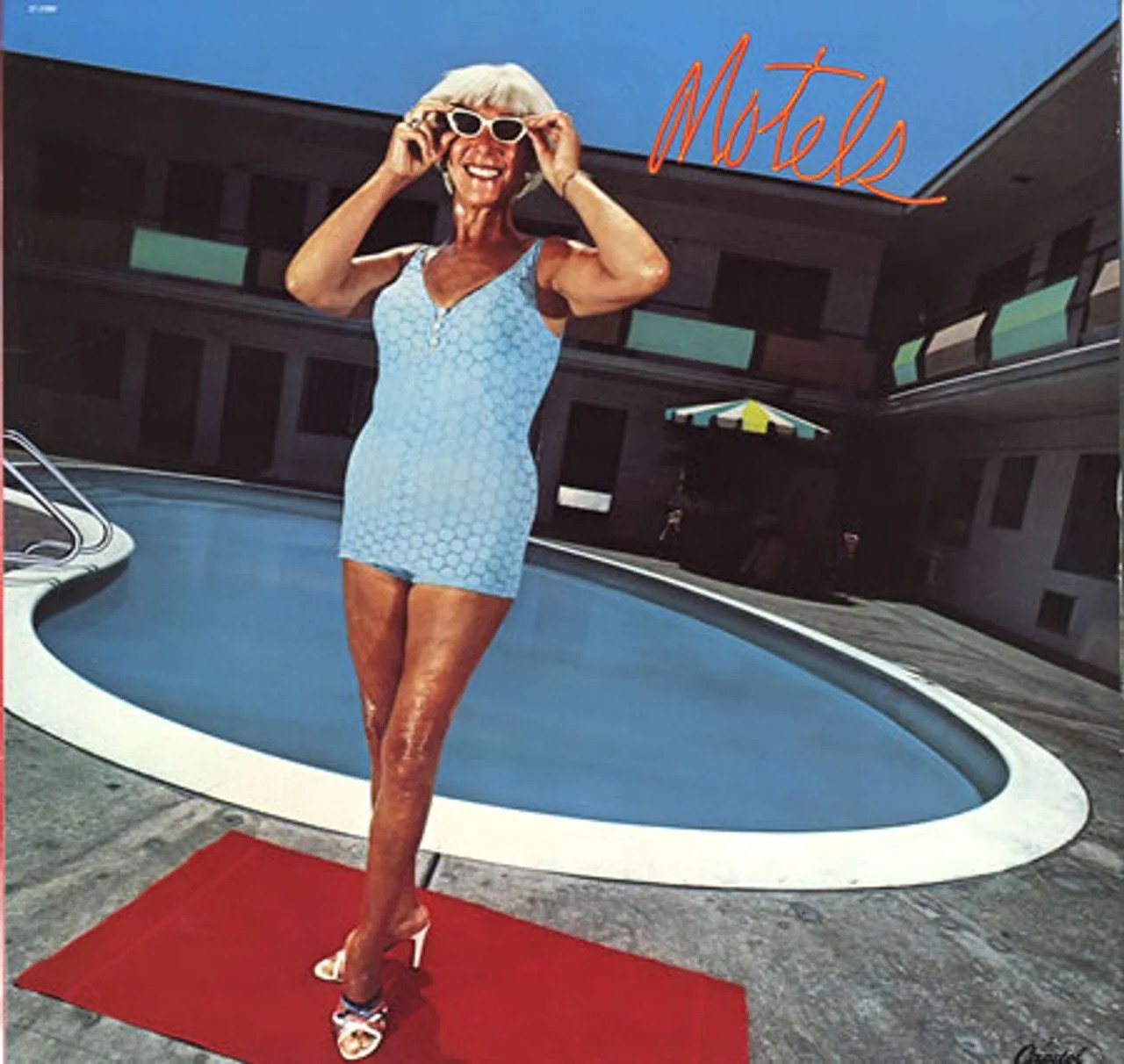
We gave Carter so much shit about it for at least a week!
We thought that we would be able to record our album mostly live. We had played the songs thousands of times in rehearsals and gigs, we could do them blindfolded. It didn’t work. In the empty, quiet studio, with no crowd, no activity, no energy in the room, it just fell dead. Carter led us through recording in the traditional way instead. When Martha started recording her vocals, she was very ill at ease at first and very self-conscious. She asked for some wine – Burgundy preferably. So Carter and I drove off to the nearest liquor store. Along the way, I forgot what she asked for, something with a “B”? I decided it must have been Brandy, so we brought back a bottle. She was really disappointed; hated hard liquor and was still very uncomfortable… but she tried drinking it, got kind of drunk and the recordings were not usable. I caught hell for being an idiot and was fired from Wine Duty. The next day, she got the Burgundy she liked and her vocals went down great.
The live band was loud, strong, and had a fat, punchy, almost sweaty kind of sound. In the studio we did not capture that at all. The engineer was not really on the same page as us. He was a staff engineer assigned to the project. He liked quiet, careful, pristine music like Steely Dan, and jazz. I was so disappointed with the sterile, careful sound of the album. So was Carter, he loved the live band. Years later, he told me, “You know all the things that drove us crazy about that record? That’s what people love about it now. They never saw the live band. They think of it as a Morning Record, something to listen to early in the day!” So – I guess you never really know.
I was there on the project more than any other person, from the first day right through to the cutting of the lacquer master. Everybody took some days off, not me. I was obsessed with it and had no other interests, so I baby-sat the thing from inception to finish. The only thing I didn’t attend to was the manufacturing – the vinyl pressing and packaging. I had a clear vision for the band and wanted to see it through.
“I love to play with words”
You have written songs as well, what’s your process like? What makes a good song?
Writing prose is natural and easy for me – there’s no size or time limit, I love to play with words, and if I like the rhythm of using three adjectives in a row, I can.
Writing songs is bloody hard because of exactly that. You have to tell your story in 40 words or less, the rhythm has to be there, it should rhyme, should have some kind of a hook, paint a picture, make some kind of a point and be over in around three minutes or so. It’s like building a ship in a bottle. Martha would get her little acoustic guitar, get a bottle of red Burgundy, and just play the guitar and sing la-la-lee-lee baby sally soo mama baba until some words would start coming. I have a hard time maintaining the free-floating dreamy state at the same time as the awakeness you need to write it down or record it. The one always cancels the other.
Songs I have written have come from lucky coincidence, or mapping it out like a school report, or sometimes there is music just pounding in my head that won’t go away, like a radio I can’t turn off. Those are the lucky days. The rest of the time, it’s a mish mash of looking over the one-liners I have collected, thinking about the world today, and playing with ways of modifying my favorite music or songs so they are something new.
One approach that worked was to imagine what it would sound like if I went to see some great unknown live band and they played something that just floored me. What was that song? What did it sound like?
Another approach is to review the band’s (or album’s) set list. So what’s missing? What do we need “now?” Usually a drumbeat or a riff or music phrase will spring to mind.
Some people seem to have reliable formulas or methods they can count on. For me, it seems more like trying to make something out of found objects and patching the missing parts by imagining what should be there. A salvage operation!
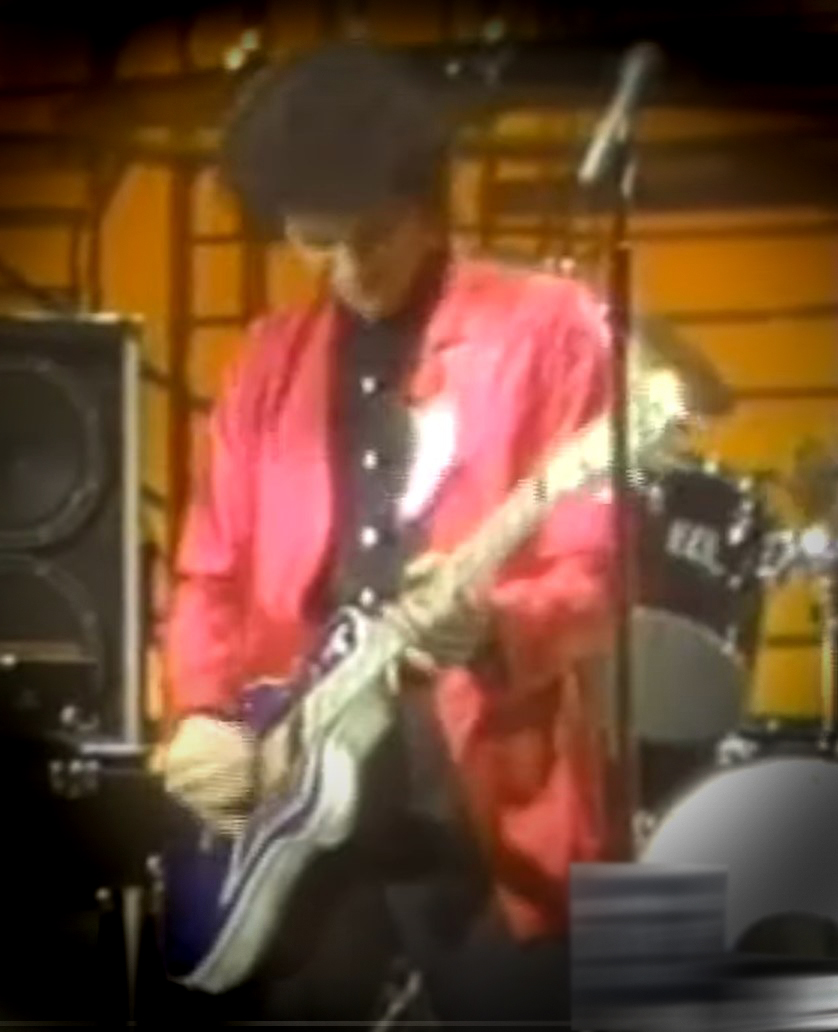
You also have a brother in the band, that must be great?
It was! Martin is my younger brother and I had a strong vision of what I was up to. I asked him to do all kinds of difficult, unfamiliar and awkward things on the keyboard. To his eternal credit he went along with me, never got pissed off or fought with me. I wasn’t liking the abrasive sterile sound of synths in those days so I had him play the Polymoog through a guitar amp and that fattened it up and distorted a bit. The guitar and keyboard blended really well that way. Sometimes at rehearsal, he would be tinkering with his tone settings and not thinking at all about what he was playing. Sometimes that would just magically line up in a fascinating way with what we were going over with bass, drums & guitar. Other times, he would be stoned and lose the beat, come in at an odd place with his part and it would sound amazing. He would never remember these things. I always recorded every rehearsal all the way through, including all the setup, room chatter and switching off at the end. I would review these tapes and find those moments. It was really hard for Marty to repeat those moments because they were at odd times, or on a strange beat, but we drilled on it and thanks to his patience and persistence, we were able to capture some of those lucky coincidences and make them permanent parts of the song arrangement.
No normal musician would have put up with how hard I leaned on Marty to work those things out – they would have told me to get off their back and then they probably would have quit. I got very lucky with Marty.
Would you mind telling us about some other collaborations you did in the 80s and so on?
I rehearsed and recorded with Peter Noone who was taking another shot at the pop world with a band he called The Tremblers. I really don’t know if any of my playing made it onto the final mix. I started a rock band named The Flames with a very young, cute and sparky Nicky Jones; I did mostly guest appearances in local bands like Leroy & The Lifters, Melvis & The Megatones, Chaintown, Phast Phreddie & The Precisions, Geza X & The Mommymen, and I collaborated and recorded with my brother Marty in his band, Locomotive. I doubt any of these would be familiar to anybody outside of L.A.
I also enjoyed your project with RJ Comer.
That was The Dance Hall Pimps. It was a great project – stylish, weird and well-funded which is such a rare thing. There was never a time when the band needed something but couldn’t pay for it. R.J. paid for photo sessions, rehearsals, recordings, even some outfits. He also rehearsed us constantly which was almost but not quite a drag because when we played gigs, we knew the material inside out. We played venues like Bar Sinister, the semi-private club above the Roxy (On The Rox), The Bootleg Theater, The Viper Room, we even played at the halftime break at an L.A. Thunderbirds roller derby event. The band went over really well, people still talk about it. It came to an end when he bought property near Nashville and relocated there. RJ is an interesting guy who will turn a sharp corner and floor it once he decides to make a change.
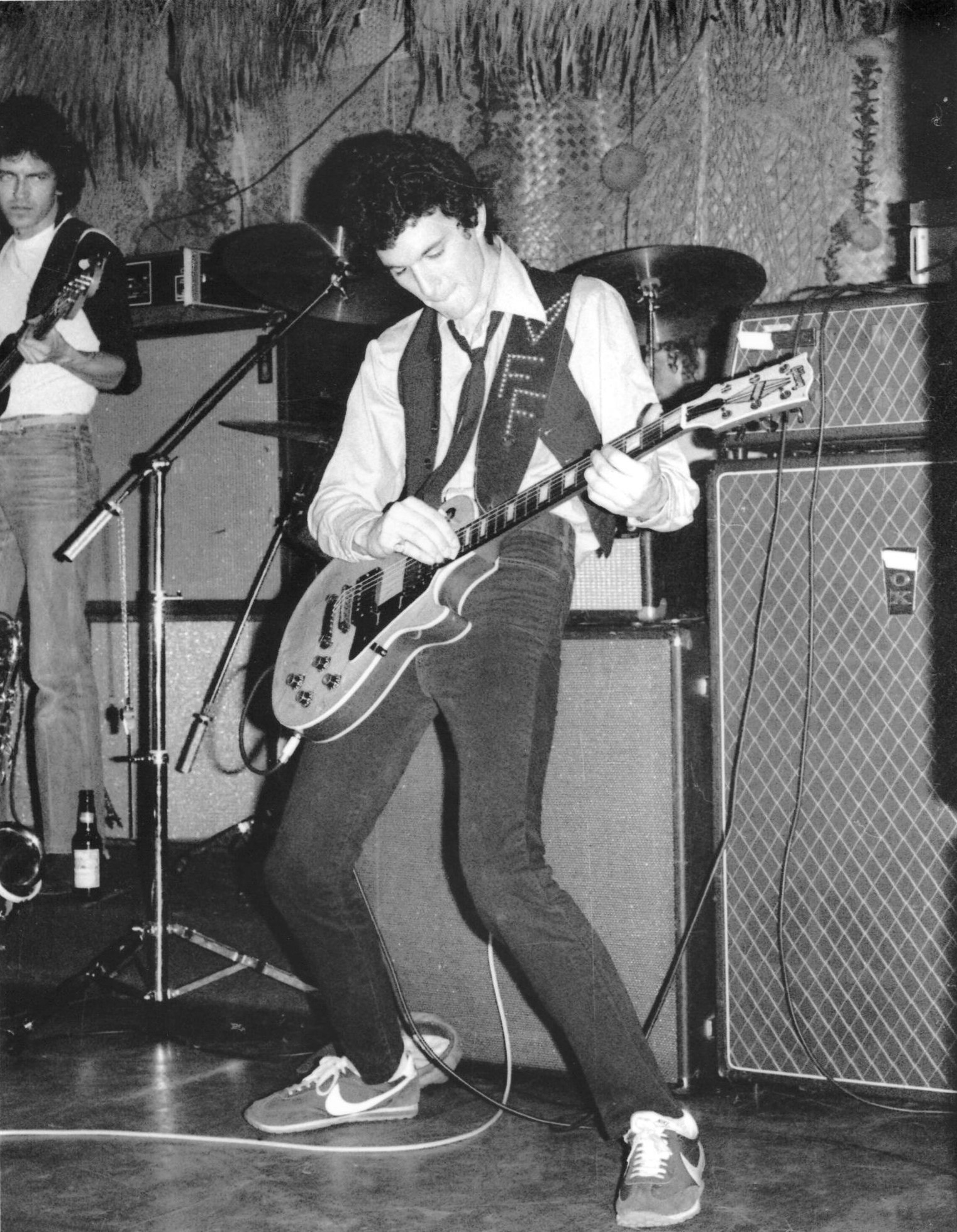
What are some of the most important players that influenced your own style and what in particular did they employ in their playing that you liked?
Of course there are hundreds; anything that caught my ear got an investigation and got tucked into my repertoire.
The big guns though were, and still are: Beck, Hendrix, Clapton and Page, with plenty of influence from John Lee Hooker, Hubert Sumlin, Mickey Baker, Howard Roberts, Sandy Bull, Jim McCarty, Duane Eddy, Lonnie Mack, Brian Jones, Junior Walker, Kent Henry, and Steve Cropper. Plus Nelson Riddle and especially Henry Mancini, whose arrangements are fascinating. I learned so much listening to the way he created relationships between the voices of his big ensembles. Also a textbook that I stole from Marty called “Creative Orchestration” by McKay. It spells out the normal ways that energy and movement is assigned to different frequencies of the spectrum and therefore which instruments get those parts. I feel as much of a push coming from arrangement and orchestration ideas as I do guitar ideas.
Let’s end this interview with some of your favourite albums. Have you found something new lately you would like to recommend to our readers?
The faves have stood the test of time. I have bought ‘The Music From Peter Gunn’ six times and there has never been a time since I was ten years old that I didn’t have a copy of it.
Big favorites are the debut Jeff Beck Group and ‘Beck-Ola,’ all the Hendrix albums up until his death, but especially ‘Electric Ladyland,’ the “Beano” album with Clapton in the John Mayall blues band, Captain Beefheart’s ‘Lick My Decals Off, Baby,’ ‘Trout Mask Replica’ and ‘Clear Spot,’ ‘The Rubber Soul’ / ‘Revolver,’… Beatles records which are more of a double album separated in time than two distinct ones, Bowie/Eno ‘Low’ and ‘Heroes,’ Iggy Pop ‘New Values,’ the early Velvet Underground albums… Free / Bad Company… I could probably fill a book.
“Lately” is tougher; it’s hard for somebody of my predilections to find new purveyors of the basic qualities that underpin all those albums – creative ideas, chance-takers, earthiness and soul recorded at the right moment. I’ve heard some hip hop tunes that floored me but they never got back-announced so I just don’t know who I was listening to.
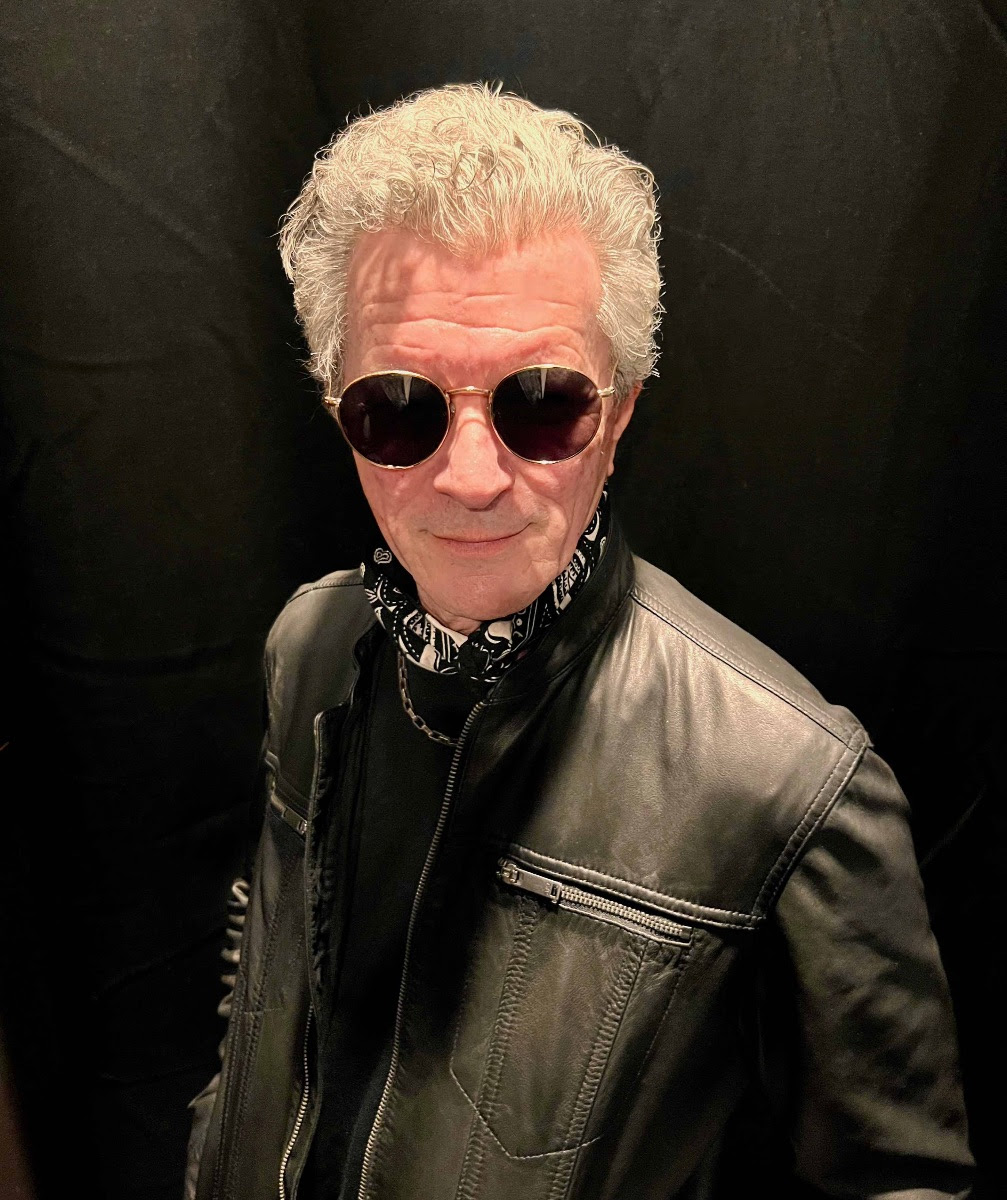
I’m all over the place. My whole life has been like that – here, there, everywhere; no single unifying theme. Some people like Tom Petty for example, had a single obsession and no other skills or interests. I doubt he knew how to fill out a check, even. Over time, he did his one thing and one thing only and got really, really good at it. Not me. I’m “pretty good” at about 19 things. If I were a miserable failure at 18 of them, and a relentless pursuer of just one, my life would be so much simpler. Not in the cards. Or my horoscope either. I had my natal chart done once upon a time – a real one, right down to the minute. It’s all over the place too. It’s a miracle I finished anything, really. It’s hard, hard work when I do.
My book would be called “Scattered”.
Thank you for taking your time. Last word is yours.
“Have Faith In Your Journey.”
(That came my way from my dear friend Chuck Newcomb)
Klemen Breznikar
Jeff Jourard Official Website /
The Hollywood Stars Official Website / Facebook / Instagram / Twitter
Headline photo: Jeff Jourard | The Motels at Madame Wong’s Wong’s 1979 | Photo by Marvin Rinnig
The Hollywood Stars | Scott Phares | Interview

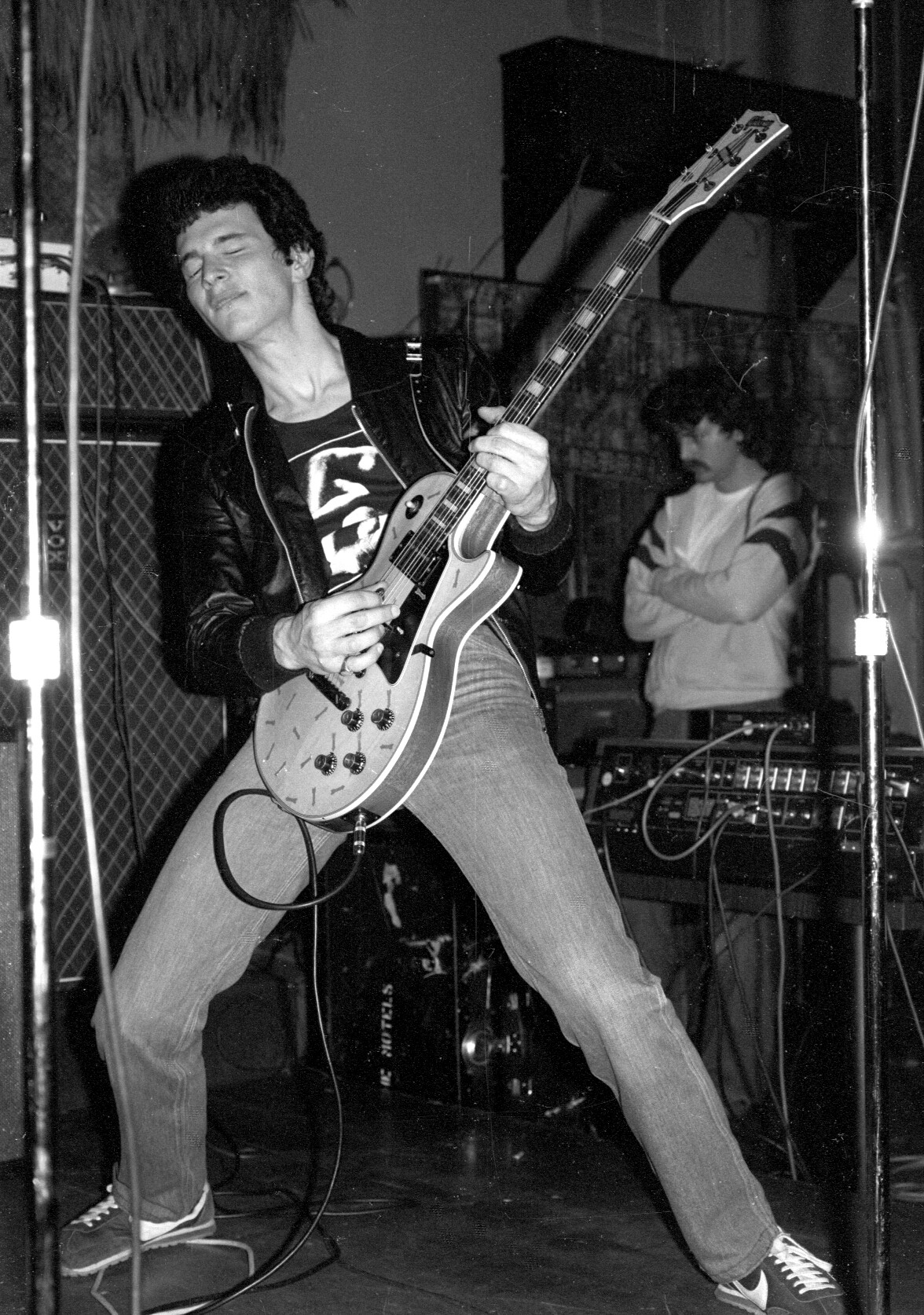

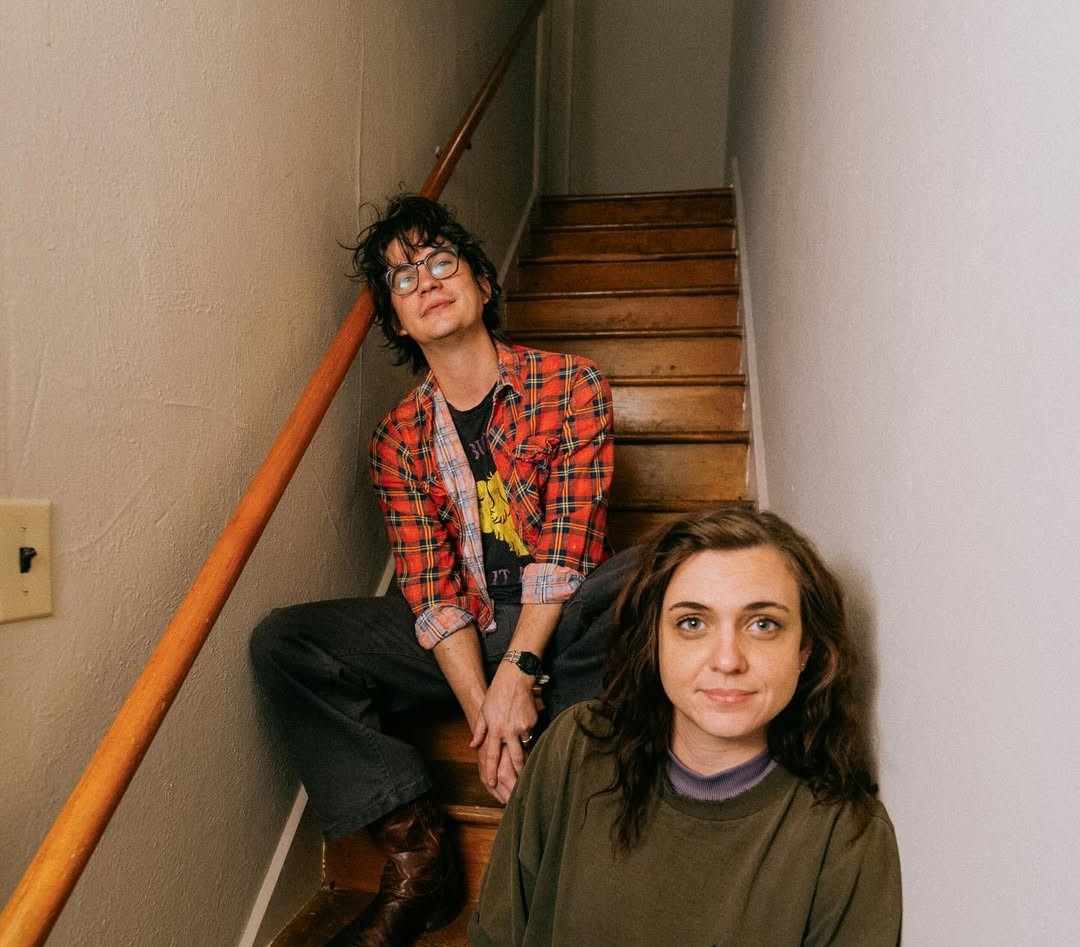
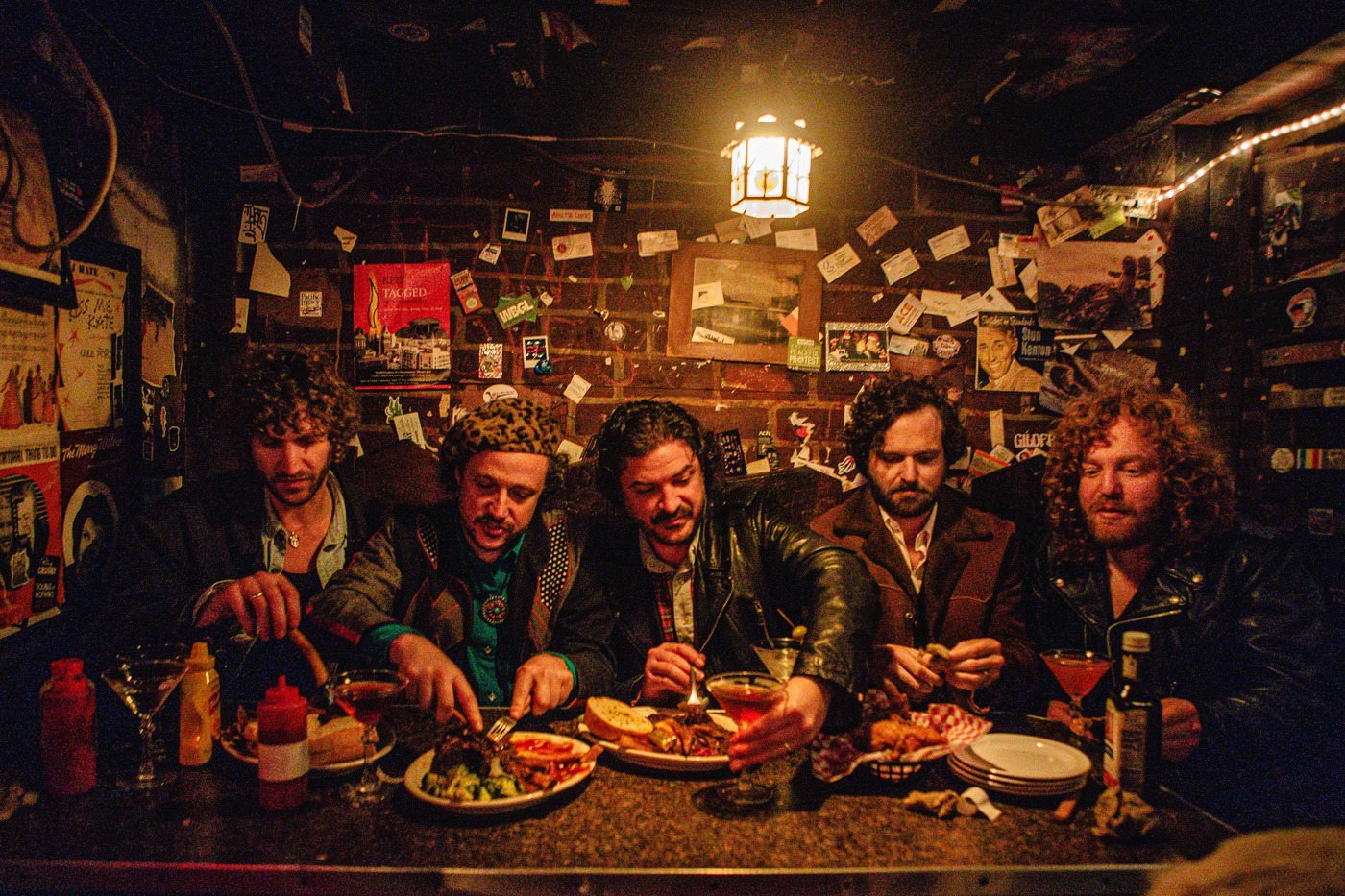
One of the best interviews of the site, a delightful read being someone who likes Tom Petty’s music and a fan of The Motels. Jeff Jourard’s amiable and engaging narrative on his distinguished musical legacy is a treat to read.